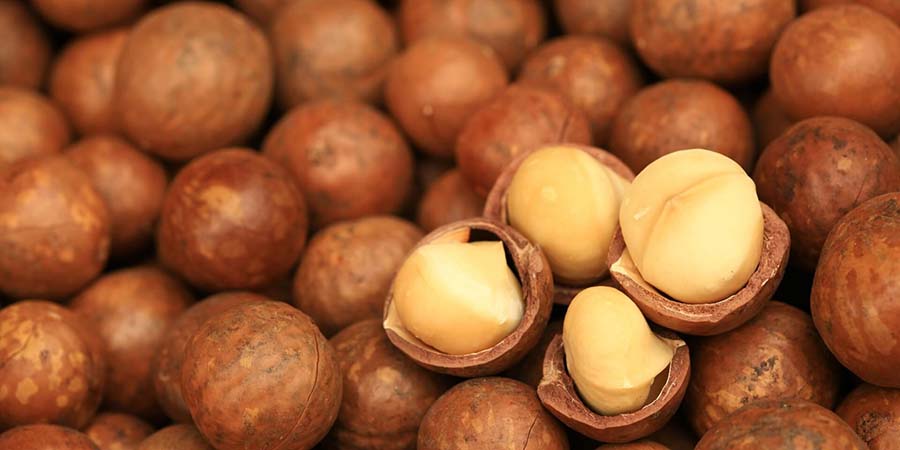November 20, 2025

PHOTO: Credit: AFA
Kenya’s macadamia industry is showing early signs of recovery after a turbulent few years, as a new government pricing policy begins to deliver tangible benefits for smallholder growers across the country.
The Ministry of Agriculture and Livestock Development (MoALD) earlier this year introduced a minimum farm-gate price of KSh100 per kilogram of raw nuts, alongside the enforcement of a ban on the export of in-shell macadamias. The move is part of broader efforts to stabilize prices, promote local processing, and safeguard farmer earnings.
According to the Macadamia Association of Kenya (MACNUT), the intervention has helped lift farm-gate prices to their highest levels in over three years, with many growers selling between KSh130 and KSh150 per kilogram during the peak of the 2025 season. In previous years, farm-gate prices had collapsed to as low as KSh20 per kilogram, leaving thousands of smallholders struggling to stay afloat.
Kenya ranks as the fourth-largest macadamia producer in the world, after Australia, South Africa, and China. The nut is grown mainly in the central highlands; Meru, Embu, Kiambu, Kirinyaga, and Murang’a counties and supports an estimated 200,000 smallholder farmers.
Over the past few seasons, however, the sector has faced steep price declines triggered by global oversupply, inconsistent quality, and predatory middlemen exploiting the absence of regulation. The new pricing framework aims to counter these issues by establishing a transparent value baseline while ensuring processors offer fair returns to farmers.
MACNUT chairpersons and local cooperatives have welcomed the move, saying it has restored confidence among growers and encouraged them to continue investing in orchard management and nut quality.
“The market has stabilized, and farmers are again harvesting with optimism,” the association said in a statement. “A clear pricing structure gives growers predictability, and the ban on raw nut exports ensures that more value is retained locally.”
The ban on in-shell exports, reinstated in 2024, has been critical in driving more nuts into domestic processing plants. Kenya currently has over 30 licensed processors handling cracking, drying, and packaging for export markets, primarily the United States, Europe, and China.
By restricting the sale of raw nuts abroad, the government aims to encourage local value-addition, job creation, and higher foreign-exchange earnings through processed nut exports. The policy also aligns with Kenya’s wider agricultural transformation strategy, which seeks to shift the country from raw commodity exports to value-added agribusiness.
Industry players say the shift has already resulted in more stable domestic demand and improved processing efficiency, with factories operating closer to full capacity for the first time in years.
Despite the improved prices, farmers and processors agree that structural challenges persist. MACNUT has reported pest infestations affecting the second harvest of the season, particularly nut borers and stink bugs, which threaten yields and quality.
There are also concerns over uneven enforcement of the new pricing regime, with some unlicensed brokers still purchasing nuts below the official floor price in remote areas. Industry associations have urged the government to strengthen monitoring mechanisms and to ensure all licensed buyers adhere to the set guidelines.
Additionally, limited access to modern processing facilities, inadequate extension services, and delayed payments from some processors remain obstacles to a fully sustainable value chain.
Experts say Kenya’s new pricing policy could mark a turning point for the sector if it is supported by complementary measures, such as pest control programs, better farmer training, and investment in processing infrastructure.
“Setting a floor price is only the first step,” one processor noted. “We need sustained enforcement, support for farmer cooperatives, and continued focus on quality to make Kenyan macadamia globally competitive.”
With global demand for premium nuts continuing to grow, particularly in the United States and Europe, Kenya’s emphasis on quality, traceability, and value-addition could strengthen its export position in the coming years.
